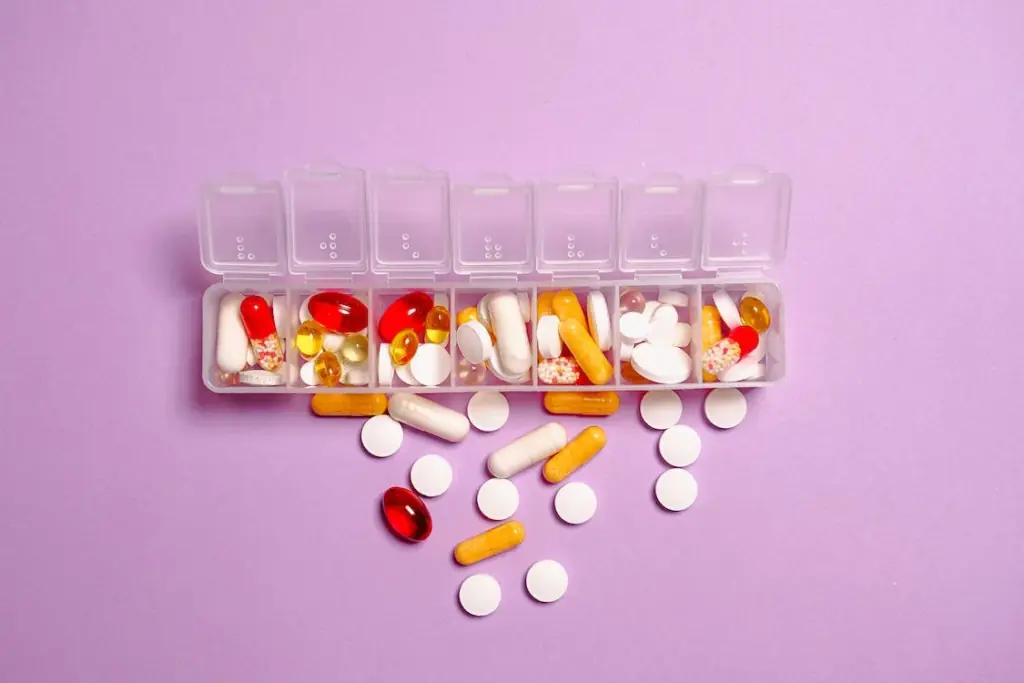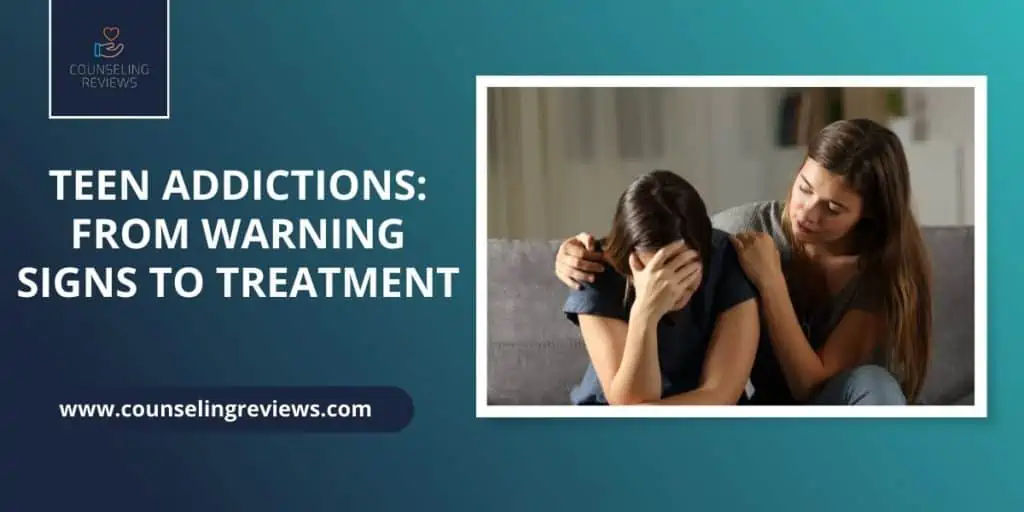It can be difficult to determine if your teenager is using any drug or alcoholic substances. There many signs and symptoms of teen addictions, and knowing these can help you get your child the help they need. If you suspect that your child is using, this is the time to do a little investigation. You need to determine if the signs and unusual behavior you see are caused by substance abuse, normal teenage behavior, or mental health challenges such as anxiety and depression. At some point, you are also going to have to ask your teen directly if they are using drugs or drinking alcohol. This could be the beginning of getting your child treatment and counseling for teens if the answer is yes.

The Main Warning Signs of Teen Addictions
Using drugs or alcohol as a teen can quickly lead to an addiction. Addiction is far harder to hide, and there are many tell-tale signs that something is amiss. The main categories of addiction signs are shifts in mood and personality or psychological changes, behavior changes, change in hygiene and appearance, and physical health signs.
Once you know what to look for, it can be easier to get to the root of the matter. To get the right clues, sniff around, look your teen in the eyes, observe their behavior, and search through their personal space for hidden items.
Mood and Personality Changes
As a parent, you know your child’s personality and mood fluctuations more than anyone. If you notice changes in any of these, this could be a sign that your child is abusing some psychotropic drug. Common changes to look out for here include regular mood swings, very high highs, very low lows, deceitfulness, manipulation, low motivation, lethargy, forgetfulness, and decreased concentration.
Your child can become hyperactive at times. This is characterized by lots of laughing for no reason, being obnoxious and unusually loud, rapid-fire speech, aggressive behavior and losing their inhibitions. They can be paranoid, fearful, drowsy, silent, sullen, depressed, and even hostile and uncooperative in the lows.
Changes in Behavior
When someone starts to use drugs, behavior changes can happen quickly. There are many of these visible signs that your teen is using. If your child starts to become secretive and isolate themselves from their family members and friends, there could be something behind this. They can start making lots of excuses and trying to hide their phone or cover up their breath with gum.
Their performance at school can go down, and very often, they are going to start missing classes and school activities, leading to complaints. It’s not uncommon for teenage drug addicts to get into legal trouble at school, disrespect authority, break the rules, and start to avoid eye contact. They can lose interest in their usual hobbies and instead get involved in illegal activity, disappear for unexplained long periods, get poor grades, and change their social circles.
You should also look out for eye reddening and nasal irritation. See if they have increased clumsiness and poor balance. They might also experience periods of high energy and periods of sleeplessness. Money problems can begin to surface.
Changes in Hygiene and Appearance
When someone starts to become a serious drug user, they may soon neglect their appearance and hygiene. You may notice poor hygiene, bloodshot eyes, sores, bruises from poor coordination, and constant scratching.
Where there has been intravenous drug use, you may see track marks on their arms or legs. They might start wearing long sleeves clothing to cover these up even when there is hot weather. If you observe their lips and fingers, you might notice burns from joints. Opiates can cause pinpoint pupils, so also take a look at their eyes. Finally, you can see if there is an unusual smell, which may be coming from drugs and alcohol in their breath and clothes.
Physical Health Problems
Teen addictions can bring about a long list of health problems. These include frequent mental illness, unusual lethargy, slurred speech, runny nose, nose bleeds, spots and sores near the mouth, and dramatic and sudden weight loss or changes either way. You might notice that they are often sweating and even having seizures and vomiting. The lack of coordination can lead to many skin abrasions.
Other health effects include sleeping difficulties, appetite changes, excessive weight gain, thirst for marijuana users, withdrawal symptoms especially headaches, shakes, and accidents.
Other Signs to Watch Out for
The signs of substance abuse above are the main ones, but there can also be other hints that your child is getting involved in drugs. If you examine their room and belongings, you may notice some of the tools and materials that drug users typically have. These include needles, pipes, small containers, vials, straws, and a range of wrappers.
You may also smell unusual smells, notice drug residues, and the strong smell of perfumes used to cover up the smell of drugs. Some of the things that can start going missing in your home include cash, valuables, alcohol, cigarettes, and medication.
What are the risk factors for teen drug abuse?
Teen drug use and abuse can be influenced by several risk factors, often summarized by the acronym FACTS:
- Family History: A family history of substance use, including alcohol, tobacco, or drugs, can increase a teenager’s susceptibility to addiction. First-degree relatives with a history of addiction can significantly heighten the risk. Research shows that children, siblings, or parents of individuals with substance use disorders have an eightfold higher risk of developing addiction.
- Age of First Use: The earlier a teenager begins using alcohol or drugs, the greater their risk of developing an addiction. Adolescents have developing brains, and substance use during this critical period can harm brain development, increasing the likelihood of future issues.
- Cravings and Tolerance: Younger brains are more sensitive to the effects of substances like alcohol and drugs. Teens who start using substances early may develop physical cravings and tolerance, which can rapidly progress to addiction.
- Surroundings: A teenager’s environment plays a significant role. Exposure to substance use within the family or peer groups can normalize these behaviors, making them seem commonplace. Such environments not only normalize use but also increase access to substances, making initiation and ongoing use more likely.
Parents and caregivers have a vital role in shaping a teen’s perception of substance use. Open discussions about the risks negative consequences of drug abuse can reduce the likelihood of misuse of illicit drugs. Being positive role models and fostering healthy behaviors within the family can significantly influence a teenager’s perspective on substances.
Peer groups also exert considerable influence. Teens may succumb to peer pressure and engage in risky behaviors if they spend time with friends who use substances. Monitoring changes in friendships and engaging in conversations about peer relationships can help identify early warning signs of underage drinking.
Media portrayal of substance and illicit drug use in movies, TV, and music can glamorize it, potentially leading to misperceptions about addiction. Understanding your teenager’s views on these portrayals and having candid conversations about substance realities can help counteract these influences.
In summary, recognizing these risk factors and actively engaging with teenagers through open, trust-building communication can empower parents and caregivers to guide their teens away from the risks of substance abuse and addiction.
The Benefits of Counseling for Teens
If you discover that your child is a drug user or is facing other mental health issues or both, you may not be sure how to help them. As a parent, you can feel overwhelmed, guilty, or out of your depth. You can blame yourself or not feel equipped to navigate this difficult period when your teen is also withdrawing from you.
Counseling for teens can bring the support and professional help your child needs to get out of drugs and deal with mental health issues. Counseling for teens offers them a safe space where there is no judgment. Teens and anyone going through drug or alcohol use or addiction can find it easier to talk to a stranger and a counselor. They might fear the anger and disappointment from their parents about how they got this far into trouble.
Counseling for teens facing drug addiction and mental health issues provides several benefits:
- Safe and Non-Judgmental Space: Teens can express themselves openly without fear of judgment or anger from parents.
- Professional Guidance: Counselors offer expert guidance tailored to the teen’s unique situation.
- Emotional Support: Teens receive emotional support, helping them cope with the challenges they face.
- Effective Communication: Counselors facilitate productive conversations and help teens articulate their thoughts and feelings.
- Healthy Coping Strategies: Teens learn healthier ways to manage stress and emotions.
- Confidentiality: Counseling sessions are confidential, fostering trust and openness.
- Recovery Support: Counselors aid in the recovery process, promoting sobriety and mental well-being.
Ending a serious drug use or alcohol addiction is not easy, but it can be done with the right support and guidance.
If your teen needs addiction counseling, there are free resources available.





